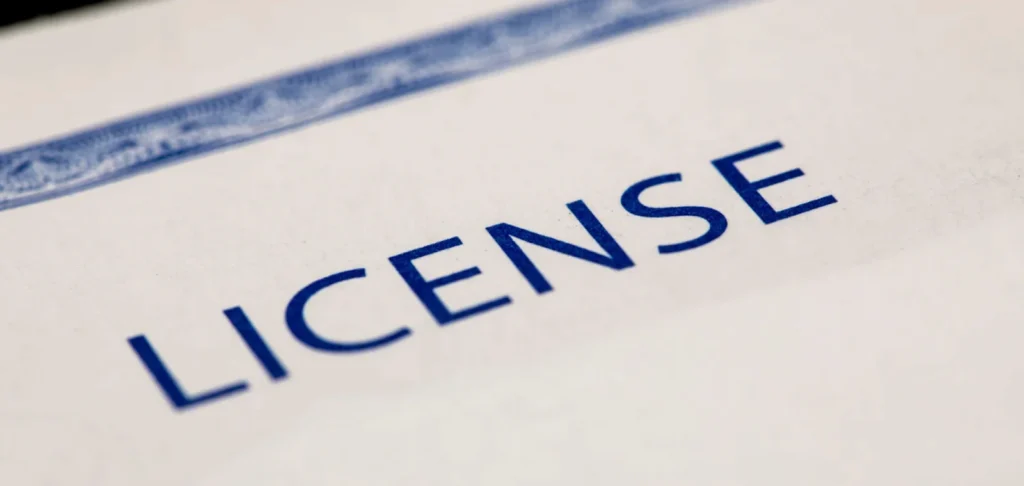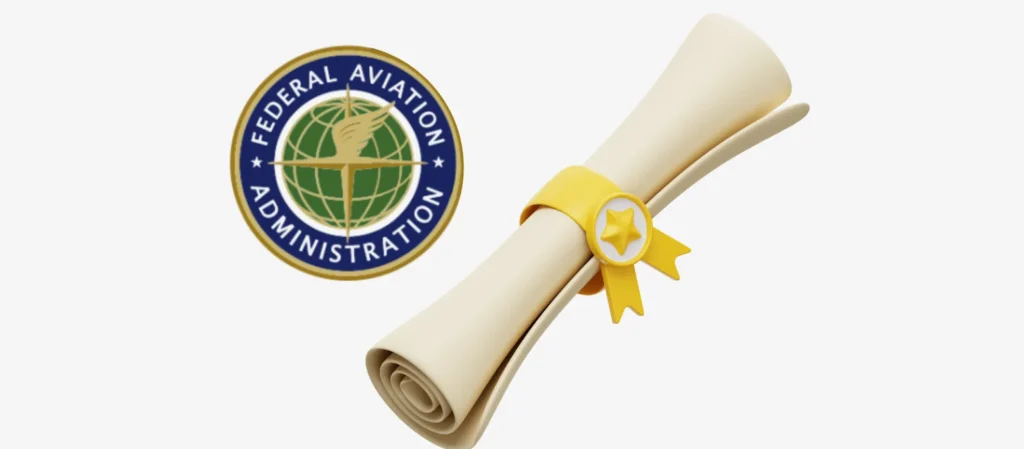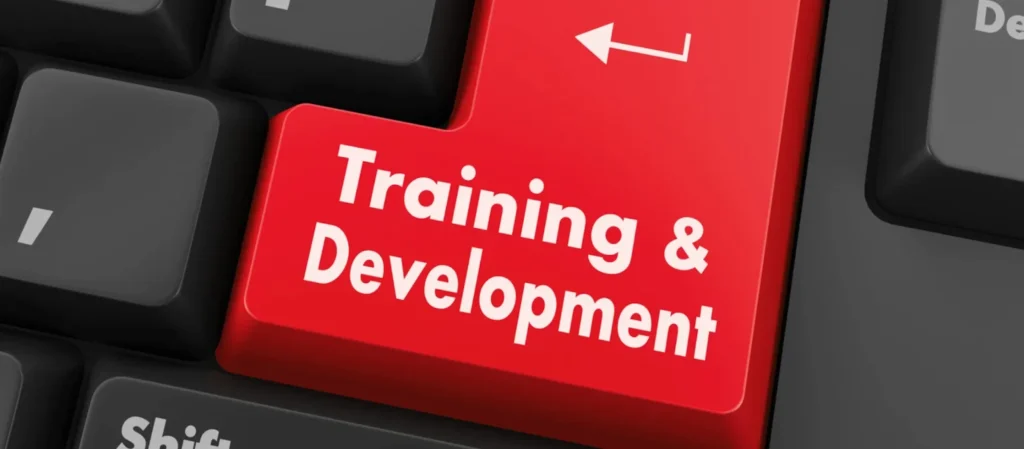A Comprehensive Guide to Drone Pilot License
Drone operation may seem easy, but there are significant legal and operational responsibilities in the United States. The Federal Aviation Administration (FAA) regulates drones to ensure the safety of both manned and unmanned airspace. A license is necessary for many drone operators, particularly those who use drones for paid services, research, or business. Without one, pilots could face fines, penalties, or even losing their right to fly.
While the using the drone rules are more relaxed for hobbyists, personal and commercial uses often overlap. That’s why it’s so important to know about drone licenses, whether you’re using them for recreational purposes, agricultural inspections, or wedding photography. Having a pilot’s license shows that you’re skilled in flying in all weather conditions and following all safety protocols. Also, in the rapidly developing drone market, it shows that you mean business.
The article covers the whole licensing process from foundations to FAA Part 107 exam prep. It covers fees, restrictions, state-specific rules, and European regulations for international flyer. “Do I need a drone license?” Yes for personal or professional usage. After the course, you’ll be an FAA-certified drone pilot able to fly commercially safely and legally.

What Is a Drone License?
A drone pilot license is an official certification from the Federal Aviation Administration (FAA) that allows a person to operate drones under specific conditions. It confirms that the pilot understands airspace rules, weather patterns, emergency management, and risk management. Beyond being a legal requirement, it ensures safe drone operations alongside helicopters, airplanes, and other aircraft.
Many people get confused by the different terms used for this license. You may hear it called a drone operator license or a UAV pilot license, both refer to the same thing. However, these are not the FAA’s official terms. The FAA officially calls it the FAA UAS license, linked to Unmanned Aircraft Systems (UAS).
For beginners, it’s often called a drone flying license, which is easier to understand. But the correct name is the Remote Pilot Certificate. You’ll receive this certificate after passing the FAA Part 107 exam and completing the required application.
It’s important to know these terms because they are often used interchangeably. Whether you call it a drone license, UAV license, or remote pilot certificate, they all mean the same thing legal authorization to operate drones commercially or professionally in the U.S. The only difference lies in everyday versus official FAA terminology.
Why You Need a Pilot License to Fly a Drone In USA
Not everyone required to drone fly certification, The FAA classifies drone operation in tow main categories, Recreational and commercial. If you flay drone for fun and under the recreational category its rules simple. If You Plan to use Drone for Business, photography, surveying and any professional purpose. You Must Passing the FAA part 107 test and getting the remote pilot certificate. This certification helps you stay legal, safe and prepared no matter how you fly.
Early knowledge of these differences avoids legal issues and helps you fly safely.
- Recreational pilots: Hobbyists do not need a license to fly recreationally. However, they are still required follow to safety guidelines in the community.
- Commercial pilots: All individuals who operate a drone commercially, whether it is in photography, inspection, mapping, etc., they are required to have an FAA-approved license.
- TRUST requirement: Hobbyists have to take the free online TRUST exam (The Recreational UAS Safety Test) to demonstrate their knowledge of basic airspace and safety regulations.
- Registration of drones: Recreational users still have to get drones above 0.55 pounds registered by the FAA.
Pilots often ask:
- Do I need a license to operate my drone in USA?: Yes, except for commercial or professional use.
- Do drones require a license in USA?: Only for commercial operations. Recreational flyers are allowed to be freer, though they need to comply with safety and registration regulations.
Being aware of your level of knowledge as a hobbyist or a professional prepares you for a safe and legal flight. By clearing the rules and asking the right questions at an early stage, new pilots can fly into the skies without any doubt as to whether they are licensed.

Overview of FAA Part 107 Drone License USA
In the United States, legal commercial drone businesses are based on an FAA Part 107 drone license. This license also permits pilots to perform professional services, including real-estate photography, agricultural surveying, and even emergency response services. The certification helps to ensure that a pilot is aware of key areas like airspace categories, weather conditions, emergency management, and aviation safety standards. In the absence of it, business flying drones is not legal in the U.S.
The important aspects of Part 107 license are:
- Commercial authorization: It is legal to have aerial service provision by pilots and make money.
- Knowledge requirements: Discussing airspace regulations, weather, emergency operations, and operating safety regulations.
- Tight operating parameters: Pilots are required to abide by the regulations regarding the maximum altitude, line-of-sight operations, and controlled access to airspace.
- Safety integration: Provides drones with a safe coexistence in the skies with manned aircraft.
- Accessibility: Part 107 is more focused on unmanned systems than the Part 61 certificate of manned aircraft and does not require a conventional aviation background.
The difference between Part 107 and the other is the responsibility level. Hobbyists are allowed to be more flexible, but Part 107 pilots are required to adhere to the FAA requirements to avoid accidents in the high-traffic airspace. This will be a structured training program that equips drone operators to deal with real-life situations and increase their career opportunities. With this license, professionals in various sectors, including filmmakers and farmers, will have credibility and the legal right to operate drones in their fields.
What Are the Drone License Requirements in the USA?
The FAA has stringent regulations governing the operation of commercial drones to ensure safety and accountability before anyone can legally fly a drone. These regulations safeguard the pilot, other individuals, property, and aircraft in the airspace.
Many new drone owners make the major mistake of believing that by registering their drone, they are eligible to fly, yet eligibility is much more than ownership.
- Age: The minimum age of pilots should be 16, and at that age, they are mature enough and responsible enough to use drones safely.
- Language proficiency: The applicants should be able to read, write and comprehend English since all FAA exams, communications and regulations are in English.
- Health and fitness: A medical certificate is not necessary, but pilots have to be physically and mentally fit. This incorporates excellent vision, coordination and alertness.
- Knowledge exam: Pilots should also pass the FAA Part 107 exam, which is an assurance that pilots are knowledgeable about rules of the airspace, safety measures and regulations.
- Application process: Under the IACRA system, applicants must apply for each drone weighing over 0.55 pounds.
- Certification: After all processes have been done, the FAA provides a Remote Pilot Certificate which allows conducting legal commercial drone flights.
These qualifications have become a standard for the whole nation and only well-prepared pilots fly in the skies. The rules may appear strict, but they are meant to safeguard everybody and minimize the chances of accidents.
Learning these requirements assists novice pilots in avoiding penalties, being responsible and flying without fear.
How to Get a Drone License in USA

Step 1: Study and Prepare for the FAA Part 107 Test
The FAA Part 107 exam is the first step to obtaining a drone license.
The test is based on the main areas:
- Flight Restriction
- Weather in the Aviation Industry
- Airspace Classification
- Emergency Actions
- Drone Safety Laws
Several of the questions are based on real-life situations, including how to read sectional charts or how wind affects flight paths. The pilots must take time to learn these concepts in detail.
The Part 107 test consists of 60 multiple-choice questions, and to pass, the candidate needs to achieve a minimum of 70. It is not a test that one can go into carelessly, particularly when one is starting out. By using such tools as the FAA Remote Pilot Study Guide, online classes, and exam quizzes, you are much more likely to pass. The effective preparation not only increases the probability of passing, but also gives confidence to fly safely once certified.
Step 2: Take the FAA Part 107 Knowledge Test
After preparation, the next step is to enroll in the test at an FAA-approved Knowledge Testing Center. Applicants must present valid government identification and pay the mandatory fee before they take the exam. The test is a two-hour computer-based test administered under stringent conditions to ensure fairness. The results can normally be obtained in a matter of days, and when the pilot passes, it provides a clear direction.
Step 3: Apply for the Remote Pilot Certificate
Once you pass the exam, you need to file a license application using the Integrated Airman Certification and Rating Application (IACRA). The FAA’s online certification management system, IACRA, allows applicants to log in, provide their test results, and confirm their identity. The Transportation Security Administration (TSA) also conducts a background check. Upon the FAA’s approval of the request, the agency dispatches a temporary certificate via email. Pilots can continue to fly commercially until the official card is made available.
Step 4: Register Your Drone with the FAA
Commercial drones that exceed 0.55lb in weight should be registered, whether or not you are certified. Upon registration, the drone is assigned a special ID number, which must be displayed on the aircraft at any time it flies. The registration identifies the drone with its licensed pilot, so the authorities can know who is in charge in case of an issue. It is fast, inexpensive, and vital in fulfilling the federal regulations.
Step 5: Start Flying Legally
Once they have gotten their license and registration, pilots are then able to work commercially. This incorporates real estate photography, construction surveillance, agricultural inspections, or any other service that will generate revenue. The certificate demonstrates legal knowledge and professionalism, which can benefit clients who require compliance. Legal flying saves operators fines and enhances their image in the highly competitive drone market.

Drone Pilot Training & Certification Options
Taking the Part 107 exam is an important milestone on the way to a UAV license, and it is important to note that the way you study can make a difference. Others are self-study pilots, whereas others invest in the organized training program.
Each route may succeed, but one is more affordable, flexible, and supported. Awareness of the trade-offs enables new pilots to decide on the approach that best suits their learning style and schedule.
- Self-study: It is low-cost and self-scheduled, using FAA study material, free online videos, and practice questions. It is most suitable for independent learners who are well-focused and disciplined.
- Professional training: Organized online or face-to-face classes where lessons are given, practice exams are administered and expert assistance is provided. Useful in the breakdown of challenging subjects such as weather interpretation or airspace charts.
- Online courses: Online courses are popular due to their interactive modules, quizzes, and video instructions. Most of them provide lifetime access, where pilots can access the materials again in case they renew their licenses.
- Considerations: Money, learning methods, and the ability to work with the complicated aviation topics.
There is no one best way to prepare; the most appropriate one is based on your own strengths and resources. The end is the same whether it is disciplined self-study or guided instruction: to have a solid base of knowledge such that drone operations are safe, legal, and in no way doubtful under the FAA regulations.
Drone License Costs USA
Understanding the drone pilot license cost is essential before starting the certification process. In addition to this test, pilots must also budget for the cost of training, registration, and renewal.
The most popular costs are as follows:
Expense Category | Typical Cost | Notes |
FAA Part 107 Test Fee | $175 | Required for each attempt (first-time or renewal) |
Training Courses | $150 – $500 | Higher cost for live instruction; cheaper for online/self-paced |
Self-Study | Low-cost / free | Requires more time and discipline |
Study Materials & Practice Tests | $20 – $100 | Optional but recommended for higher pass rates |
Drone Registration | $5 per drone (valid 3 years) | Mandatory for each commercial or recreational drone |
Renewal Exams | $175 | Required every 24 months to stay certified |
Commercial Use Extras | Varies | May include insurance or advanced training for business operations |
When comparing the drone license cost vs commercial drone license cost, the main differences usually come from additional training or insurance needed for business operations. Either way, these expenses are actually minor in the face of the potential earnings and career prospects that a legitimate certification opens up.
Maintaining & Renewing Your Drone License
It is as important to maintain your certification as to achieve it. The FAA drone license does require particular renewal every two years, and remaining within the requirements will allow you to continue flying without problems.
Validity of License: The FAA drone license is valid for 24 months, after which it must be renewed.
Renewal Approach: The pilot does not have to take the face-to-face examination again. Rather, the FAA offers a free online recurrent training program.
Convenience Factor: Renewal online is quicker and more convenient, yet it keeps pilots informed of changes in safety and regulations.
Compliance Requirement: It is unlawful to work with an expired certificate, and it can lead to fines, so it is necessary to renew it.
Professional Integrity: Regular training proves that you are committed, and this will ensure that clients are comfortable that you are operating within the current requirements in the aviation industry. With a regular license renewal and continuous training, you will not only be able to act in accordance with the rules but also become a good and competent drone pilot.
Commercial Drone License
A commercial drone license is not optional for anyone planning to fly drones for business purposes; it’s required under FAA rules. This certification, also known as the Part 107 license, allows operators to legally earn money from their flights. Whether it is photography, inspections, or mapping, the license draws the line between professional use and hobby flying.
What it allows: Activities such as aerial photography, land survey, real estate marketing and infrastructure checking on a paid basis.
Why it matters: Even minor side jobs are not allowed without certification. Most customers need to be shown evidence of drone operators’ licensing.
The distinction with hobbyists: Commercial flyers are required to seek airspace clearances, register flights and have a tighter operational minimum than recreational flyers.
Professional credibility: The possession of the license is an indication of conformity and dependability and operators become more competitive in the market.
Additional considerations: Liability insurance and adherence to the local regulations about the safe and legal work of drones. In other words, a UAV pilot license is not merely a legal requirement but the basis of an effective, safe, and viable drone enterprise. The certification helps pilots transform their skills into professional experiences and safeguard themselves and their clients.
State Specific Drone Licensing Laws USA

Drone License in Alabama
Drone pilots in Alabama must comply with FAA regulations; however, certain local regulations are also present. Even though there is no Alabama program for a separate commercial drone pilot license, commercial operators are required to adhere to local privacy regulations and limitations on state-owned property. As an illustration, it is impossible to surveil people without their consent with the help of drones, which safeguards the rights of the residents. The Alabama FAA drone license is still the most fundamental credential for commercial flight, although pilots ought to consult municipal ordinances prior to flight.
Drone License in Arizona
Arizona implements federal FAA rules, but in some regions, it has extra restrictions. As an example, it is not allowed to fly drones in state parks without a special permit. This conserves wildlife and natural scenery. A drone pilot license in Arizona is necessary to work commercially with a drone, and one should work in industries that are active in the state, including real estate or tourism. Operators should also not forget about the airspace surrounding military bases, where unauthorized flights result in serious repercussions.
Drone License in California
California is among the most prolific states that use drones, particularly in such sectors as filmmaking, agriculture, and construction. In addition to the FAA, licensing is controlled by the privacy and trespassing laws that California enforces upon the drone operators. To comply with the California drone license rules, one must have a valid Part 107 certificate and comply with the local laws, including not flying over residential areas without prior consent. Other cities are more strict on drones, and therefore operators need to research the county or municipality before they can fly.
Drone License in Colorado
Colorado’s varied landscape has made it a popular location for drone photography and surveying. To be legal in Colorado, commercial pilots should have an active Part 107 certificate, otherwise known as a UAV pilot license. Under the Colorado drone hunting license ban, recreational flying is allowed in most public locations; however, no hunting with drones is permitted. In the parks and areas with wildfires, local authorities also limit the use of drones to ensure the safety and resources of the parks.
Drone License in Florida
Florida has very strict drone policies, particularly in the areas of privacy and enforcement. The Florida UAV license requirement implies that commercial pilots should adhere to the FAA rules without violating the state’s privacy laws. Indicatively, drones cannot take pictures of people in their privacy without their permission. To mitigate the security risks, Florida also limits drones around critical infrastructure, such as power plants and seaports.
Drone License in Illinois
Illinois has both federal and state laws on drone operations. FAA Part 107 regulations require pilots to adhere to them, though some municipalities have other restrictions. The rules of Illinois drone licensing focus on the safety of popular areas and the preservation of personal privacy. A pilot can be fined for flying over a school, hospital, or stadium without permission. Before commercial operators assume projects, they should check the local laws.
Drone License in North Carolina
North Carolina expects commercial drone operators to have both an FAA Part 107 certificate and a permit on the state level. The state’s Department of Transportation issues a drone pilot license, making it one of the few states with an extra licensing step. This is to ensure that pilots are conversant with federal and local aviation rules before they can operate commercially.
Drone License in Ohio
Ohio is subject to the FAA’s drone operation regulations, although there are restrictions around airports and mass gatherings. The regulations for the Ohio UAV license are extremely airspace safety-oriented, as the state has several aviation hubs. Commercial operators should possess a Part 107 certificate and adhere to local ordinances that limit flying near crowds or government premises.
Drone License in Texas
Texas ranks as one of the largest commercial drone work centers, whether it is oil and gas inspection or real estate marketing. Pilots must meet Texas UAV license requirements by holding a Part 107 certificate. The state also enforces strict privacy laws that restrict drones’ capability of capturing people or personal property. The flight of aircraft over correctional facilities, sporting facilities, or military bases without permission is highly prohibited.
Drone Licensing in Europe (EASA Rules)
The FAA regulates all of the drone operations in the US. In Europe, the European Union Aviation Safety Agency, or EASA, is in charge of drone regulations. These rules cover all EU member states and provide one system of managing drone operations. Pilots are required to become operators and ensure that their drones are EASA-classified in terms of weight and purpose.
Most pilots also require training and certification. Although recreational flying does not necessarily involve advanced exams, commercial use might involve an online theory course and a test. The EASA drone license emphasizes risk categories more than the U.S. license, classifying operations as open, specific, and certified. Knowing these categories will enable European pilots to align their drone operations with the appropriate regulations.
Conclusion
Obtaining a drone license in the United States can be complex, but it is easy when it is divided into steps. Since the eligibility criteria just meet the minimum qualifications to fly the Part 107 test and the certificate, every step is a guarantee of safe and responsible flight.
A license is not just legal compliance; it is also evidence of professionalism and a key to commercial opportunities in such industries as real estate, agriculture, and construction. You can be a hobbyist who might want to use it in business or a would-be professional pilot; either way, having a license is a good investment. By complying with the FAA and state regulations, it helps drone pilots in developing their careers and ensures that the skies remain safe for all.
Ready to see what ZenaDrone can do for your business? Book a demo today and see how smarter, safer and more efficient drone operations can be.
Frequently Asked Questions (FAQs)
Do I need a license to operate my drone recreationally?
No, recreational pilots do not require a Part 107 license, but they are required to register drones with a mass exceeding 0.55 pounds and pass the FAA TRUST test.
What are the requirements for a drone pilot license?
You must be 16 years old, know English, be physically and mentally fit, and take the Part 107 test.
How much does the FAA drone license cost?
Test knowledge is $175 per attempt and there are extra fees for training or preparation resources.
How long does it take to get a drone license?
The majority of applicants are done in a few weeks, depending on the schedule of the tests and background checks.
Can I fly drones commercially without a license?
No, commercial pilots who have not been certified to fly are not allowed to fly under the FAA rules.
Is a commercial drone license different from an FAA drone license?
No, the two terms are generally used to refer to the FAA Part 107 remote pilot certificate.
Contact Us
Thank you for your message. It has been sent.





